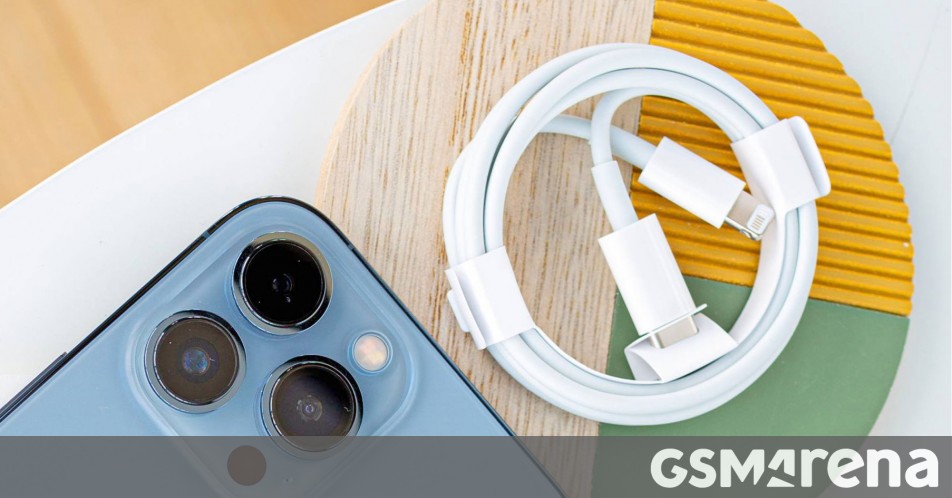The problem with these types of mandates is it locks us into standards and makes change hard. Imagine if they had done this when the terrible USB port was dominant.
Or, it gives all the power to the USB group. They have a terrible track record (USB-C is a mess).
The other problem is all the cheap devices that have a USB-C port, but will not charge from a real USB-C to USB-C cable. They are the same old USB ports electrically with a new shape.
These are bad laws with good intents.
Standards can be updated. Like the EU standard was from Micro-USB to USB-C. It happens all the time in all fields of technology.
God that last one drives me up a fucking wall. My partner’s laptop refuses to charge with anything except the officially supported power adapter, even though it’s just a USB-C connector. Everything I’ve plugged it into has been rated for the 100W that the laptop needs to charge, but the damned device locks out anything except official chargers under the guise of safety.
That should be illegal.
It’s locking nobody with no standard. The standard is evolving time to time. This argument of locking the user which by the way is the same as “competition is the better” is the Apple argument to impose it’s locked (walled garden) ecosystem.
It’s well known strategy to argue in a way that isn’t your goal to achieve another one. Apple is a master here. They use this same strategy with the future mandatory easy battery replacement.
There is a second stage, starting from April 1, 2026, which will apply to laptops and portable computers.
I hate this type of legislation. Almost zero USB chargers can power a laptop. But politicians don’t know that. So this won’t reduce the number of chargers. Unless they’re requiring all charges support the full PD spec?
Leave standards to experts.
Edited: Yes i fucking know many laptops use USB-C power now. You’re not smart in telling me this. I mean that most USB chargers are cheap crap that can’t put out enough power to run a laptop. Not all USB is the same.
What do you mean? My M1 MacBook charges just fine on USB-C. Do you mean that 1A USB chargers can’t do the job? Cause they can’t
yes - this is exactly what I mean. They’ve legislated the interface but not the standard.
It’s all part of the USB standard, there can be different “levels” of chargers. If I’m just travelling with my phone, I don’t want to have to bring a 240W charger. It would be way too expensive and also too big/heavy. The good thing is, if you have to bring a big charger anyway, you can also use it to charge your phone or your headphones. That’s what the standard is all about.
Yes, there are USB-C chargers that are made for smaller devices and can’t charge a notebook. So what? The alternative would be going back to proprietary chargers that can only charge one specific model.
I have a 100W USB-C-charger in my car, I have one by my bed, one on my couch, one at my desk and one powerbank that can charge my notebook anywhere I go.
Going back to proprietary chargers would mean if my notebook breaks, I can throw all these chargers in the trash and buy a new set. How would that make anything better?
The alternative would be going back to proprietary chargers that can only charge one specific model.
I realize you’re exaggerating but all you’re doing is standardizing on size and shape of the connector. Not the power standards it supports. If your laptop needs 240W PD 3.0 and your car supports 100W QC3 you’re still out of business. If your laptop uses QC3 but needs 12v and the adapter only supports 9v you’re still out of business.
USB is not a standard. It is a collection of standards.
I have never had a 65W+ USB charger that had trouble charging any of my USB-C devices, including my notebook. Yes, USB has different standards, but most chargers support several different ones. Especially with third-party chargers, people want them to work with their device no matter what it is and USB makes it easy for manufacturers to offer that.
Leave standards to experts.
That’s what everybody did at first. It gave us a different connector for each device. After a few decades, there are still competing standards. Either the experts are incompetent, or the business environment they’re in doesn’t incentivize single standards.
Or, and go with me here, it’s a non-issue? Like it’s fine to have multiple standards for different uses?
All they did was standardize the shape of the connector. Not the voltage, power output, etc. So you’ll still have multiple competing standards and it will be a bit more confusing as “not all USB chargers will be able to power your laptop.”
When I’m travelling, I can bring one single charger to charge my laptop, my phone, my tablet, my wireless earbuds, my flashlight, my powerbank, my e-Reader and my bike pump.
In your world I would have to bring eight different chargers. That’s a pretty big issue to me.
There is a second stage, starting from April 1, 2026, which will apply to laptops and portable computers.
I’m with them on small devices using USB C, but all laptops is a pretty tall task. Can gaming laptops that need a high voltage even use USB-C? They already struggle with massive charging bricks and thick cables.
The latest USB power delivery standard allows for new voltages of 28, 36, and 48 volts at up to 240 watts at 48V. My current Dell workstation laptop uses two 20V USB C connectors to achieve similar.
I’m imaginining some kind of monstrosity of a gaming laptop with a power cable that looks like a hydra splitting into three or four USB-C connectors, and it’s gloriously silly.
Maybe it’s time for a new thing similar to USB 3.0 micro B, with two USB-C connectors next to each other on the same plug.
It would make since to say something like usb-c is required for up to x volts. Then x-y volts require this other kind of charger.
I mean it’s totally valid if the required technology literally can’t handle certain applications that there needs to a level 2, level 3, and onward option.
Why make yet another standard instead of expanding the existing one? The newest USB-C standard allows for 240W at 48V. That should be enough for pretty much all mobile electronic devices. You could even charge an e-scooter at a reasonable rate. And at the same time, you could still charge your wireless headphones with the same charger because it’s compatible. Doesn’t get much better than that.





